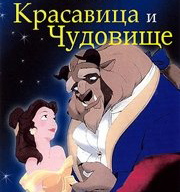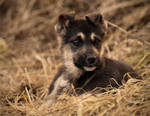Приходить/прийти (часть первая)
The verb pair приходить/прийти is usually translated as “to arrive, come.” Notice that there is an й in the perfective infinitive:
| Imperfective | Perfective | |
| Infinitive | приходить | прийти |
| Past | приходил приходила приходило приходили |
пришёл пришла пришло пришли |
| Present | прихожу приходишь приходит приходим приходите приходят |
No such thing as perfective present in Russian. |
| Future |
буду приходить будешь приходить будет приходить будем приходить будете приходить будут приходить |
приду придёшь придёт придём придёте придут |
| Imperative | приходи(те) | приди(те) |
In English we often use the preposition “at” with the verb “arrive,” so we have to bear in mind that for Russians arrival is a motion; that is, you complement the verb with either в/на + accusative or with к + dative:
| Профессор пришёл в университет в восемь часов утра. | The professor came to the university at eight o'clock. or The professor arrived at the university at eight o'clock. |
| Юля всегда приходит на работу поздно. | Julie always comes to work late. or Julie always arrives late at work. |
| Когда ты придёшь к нам в гости? | When will you come visit us? |
Now here's an interesting quirk. Compare these two sentences:
1. Профессор пришёл в университет в восемь часов утра.
2. Профессор пришёл в Москву в восемь часов утра.
Although the sentences are grammatically identical, (1) sounds perfectly natural, whereas (2) sounds awful. That's because the stems ход- and ид- often imply going somewhere by foot, and it's quite uncommon to travel to a city by foot. In other words, avoid приходить/прийти when talking about travel over a long distance.
One last quirk. When someone knocks at a door, in English the response is “Come in.” Beginning students sometimes translate that as «Приходите, пожалуйста». A Russian will never say приходите in that context because the person knocking has in fact already arrived. Instead a Russian will express that idea with входить/войти “to enter”:
| Входите, пожалуйста. | Come in. |
| — Можно войти? — Пожалуйста. |
“May I come in?” “Yes, please do.” |
| Когда я вошёл в комнату, я заметил, что телевизор был включён. | When I came into the room, I noticed that the television was on. |
Красавица
 The word красавица, which means “beautiful girl,” has the same root as «красивый», “beautiful or handsome”, «красота» “beauty” and «красный» “red.” Sometimes it can be translated as “beauty” as in the name of the famous fairy tales, «Спящая красавица» “Sleeping Beauty” and «Красавица и чудовище» “Beauty and the Beast.”
The word красавица, which means “beautiful girl,” has the same root as «красивый», “beautiful or handsome”, «красота» “beauty” and «красный» “red.” Sometimes it can be translated as “beauty” as in the name of the famous fairy tales, «Спящая красавица» “Sleeping Beauty” and «Красавица и чудовище» “Beauty and the Beast.”
When I think of красавица, I imagine a pretty girl from the Russian countryside of Gogol’s time. She is wearing a colorful dress and a kokoshnik-tiara. Her hair is neatly braided in one long thick braid, and her big brown eyes are coyly cast down. She is the classic «русская красавица» “Russian beauty” that has been praised by so many literary masters.

| Какая же ты красавица! Тебе так идёт зелёный! | "You are such a beauty! Green looks so good on you!" |
| — Вы видели невесту? Такая красавица! — Да, жених наверное себя самым счастливым чувствует! |
“Did you see the bride? Such a beautiful girl!!” “Yes, the groom probably feels that he is the luckiest!” |
The masculine form of this word is красавец “stud.” In day-to-day speech we sometimes use «красавец» or «красавчик» to express our approval or when we are pleasantly surprised with someone’s behavior:
| Ну, ты, конечно, красавчик! Ты пригласил её на свидание у всех на глазах! | Wow, you are the man! You asked her out in front of everybody! |
«Красавица» can be used in a similar way as well:
| Ты — красавица! Совсем не готовилась к экзамену и сдала с первого раза! | You go, girl! You didn’t study at all for the exam and yet passed it on the first try! |
 I have a personal history with this particular word. When I was a little girl, I could not pronounce some letters. The letter “r” gave me the most trouble. My mom would make me read and do various exercises for at least thirty minutes a day before I could go play with my friends. Needless to say, I really wanted to break this vicious cycle and learn to say the “r” right so I could finally go run around the yard. One day I was home alone, playing with my dolls. For some reason I decided to practice my “r’s”, using the word красавица. It came out so perfectly clear; I could not believe I had nobody home to brag about it to! I remember saying it over and over again, worried that I would lose it… but I never have. When I think about it, it is very neat that it was this word, красавица "beauty", that made my speech more beautiful!
I have a personal history with this particular word. When I was a little girl, I could not pronounce some letters. The letter “r” gave me the most trouble. My mom would make me read and do various exercises for at least thirty minutes a day before I could go play with my friends. Needless to say, I really wanted to break this vicious cycle and learn to say the “r” right so I could finally go run around the yard. One day I was home alone, playing with my dolls. For some reason I decided to practice my “r’s”, using the word красавица. It came out so perfectly clear; I could not believe I had nobody home to brag about it to! I remember saying it over and over again, worried that I would lose it… but I never have. When I think about it, it is very neat that it was this word, красавица "beauty", that made my speech more beautiful!
Летать
The most generic verb for travelling by air in Russian is летать “to fly.” It is a perfectly regular imperfective verb and conjugates exactly like читать:
| Imperfective | |
| Infinitive | летать |
| Past | летал летала летало летали |
| Present | летаю летаешь летает летаем летаете летают |
| Future |
буду летать будешь летать будет летать будем летать будете летать будут летать |
| Imperative | летай(те) |
This is an indeterminate (multidirectional) verb of motion, which means it has several uses. First of all, in the past tense it can mean a completed trip to and from a place:
| В августе мама летала в Москву. | In August Mom flew to Moscow. |
By using a unidirectional verb in that context, Russian clearly states that Mom is no longer in Moscow. She went there and then departed. Another example:
| — Что ты вчера делал? — Я летал в Мосвку. — Ты туда и обратно слетал за один день? Какая у тебя сумасшедшая жизнь! |
“What did you do yesterday?” “I flew to Moscow.” “You flew there and back in a single day? What a crazy life you lead!” |
The verb can also be used of flying generically or of the ability to fly:
| Змеи ползают, люди ходят, а птицы летают. Я хочу быть птицей! | Snakes crawl, people walk, and birds fly. I want to be a bird! |
| — Как я люблю летать! — А я нет. Вдруг в мотор влетит гусь? Тогда ты пропал! |
“I really love to fly!” “I don't. What if a goose flies into the engine? Then you are done for!” |
Побежать
Побежать is the perfective form of the verb бегать “to run.” It incorporates one of the four most irregular verb stems in the Russian language:
| to run | |
| Perfective | |
| Infinitive | побежать |
| Past | побежал побежала побежало побежали |
| Present | No such thing as perfective present in Russian. |
| Future | побегу побежишь побежит побежим побежите побегут |
| Imperative | побеги(те) |
Побежать literally means “to run”:
| Ваня побежал по дороге. | Ivan ran down the road. |
Although the verb does mean “to run,” it's actually used in conversation more often to mean “to take a quick trip” or “to be moving quickly” instead of literally running. The same is true for the English verb “to run” as well, of course.
| — Где мама? — Она побежала в магазин. |
“Where is Mom?” “She ran to the store.” |
On the colloquial level the verb can almost mean the equivalent of the English “I'm out of here/I'm gone”:
| — Серёжа, не уходи. Останься, пока не напишем доклад. — Нет, я побежал. Моя девушка ждёт меня. |
“Sergei, don't leave. Stay until we finish writing the report.” “No, I'm out of here. My girlfriend is waiting for me.” |
| Я не могу здесь остаться. Я побежал. | I can't stay here any more. I'm gone. |
Собака на сене
Russians love their proverbs and pithy sayings. It is amazing how many of them we have and use excessively to express so many different emotions. It seems that we have one for every life situation. We love them almost as much as we do our swear words ![]() (Honestly, I once heard a guy speak using just swear words! Quite an experience, I might add…)
(Honestly, I once heard a guy speak using just swear words! Quite an experience, I might add…)
 «Собака на сене» is one of the very neat expressions we use. It is translated as “dog on hay”. The full saying goes: «собака на сене: и сама не ест, и другим не даёт», “dog on hay: she neither eats it herself, nor lets the others”. It is used when someone does not do something simply out of spite or uses something that others want just so they will not get it.
«Собака на сене» is one of the very neat expressions we use. It is translated as “dog on hay”. The full saying goes: «собака на сене: и сама не ест, и другим не даёт», “dog on hay: she neither eats it herself, nor lets the others”. It is used when someone does not do something simply out of spite or uses something that others want just so they will not get it.
| Она - как собака на сене: она не любит его, но не дает ему найти другую. | “She is like a 'dog on hay': she does not love him but she will not allow him to find someone else.” |
| Моя жена вегетарианка, поэтому дома мы не едим мясо. Она как собака на сене: и сама не ест, и нам не даёт! | “My wife is a vegetarian; therefore, we do not eat meat at home. She is like a dog on hay: she neither eats it herself, nor lets us!” |
Here is how my kitty demonstrates it: ![]()

| Моя кошка любит спать на крышке унитаза - ну, не собака ли на сене? | “My cat likes to sleep on the toilet cover – she is a regular dog on hay, isn’t she? |
There is a really great play written by Lope De Vega that is called «Собака на сене». There a beautiful duchess falls in love with her secretary. She cannot be with him because of the difference in their social status, but at the same time her jealousy is driving her crazy. She is torn between what her honor dictates her and what her heart yearns for. That makes her act like the dog in the proverb: she does not commit to either being with her love or agree to let him go. It is a beautiful love story with a very happy ending.
This play was staged and made into a movie in 1977 by a talented director, Yan Frid. This adaptation is very popular and much loved in Russia. I would recommend for everyone to see it!
<< 1 ... 75 76 77 ...78 ...79 80 81 ...82 ...83 84 85 ... 158 >>